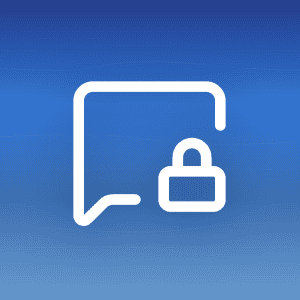We have gathered once more, Mailfence and several other providers in the industry to request from the European Commission to include interoperability provisions in the Digital services Act. Europe was founded on values such as democracy, freedom, and fairness it is imperative that it continues to support these values and builds upon them.
This is not just a joint-attempt for businesses but rather this joint-effort seeks to make life better for all walks of life, business users will be more efficient and enjoy lower costs and citizens will have more freedom of choice and choose from services that fit their needs the most. Interoperability is Europe’s biggest competitive advantage, with this open letter we are one step closer to a Europe that allows a united and more open Internet. Please find the open Letter to Executive Vice-President Vestager below.
Dear Ms. Executive Vice-President Vestager,
We write as keen supporters of the three key objectives of the Commission’s February 2020 Digital Future Communication:
- ensuring technology works for people
- a fair and competitive economy, and
- an open, democratic, and sustainable society.
In this context, we call on the European Commission to include, in its forthcoming proposal for a Digital Services Act, ex-ante interoperability requirements for major actors in digital services markets characterized by significant network effects, in order to ensure real choice, fairness, and contestability.
For business users, interoperability means greater choice, more efficiency, and lower costs because they enjoy a wider choice of suppliers for each task, and the possibility to obtain equipment, services, and systems that are more closely adapted to their specific needs for each task.
For the European Internet industry, and in particular, SMEs, the anti-competitive barriers created by the lock-in of established userbases into specific service providers due to network effects or closed proprietary solutions, can be reduced by interoperability. New, innovative solutions can be brought to the market. Interoperability is key to Europe’s competitiveness in the digital transformation.
For citizens, interoperability means more choice as they get the possibility to shop around for the best offer independent of the choices made by their peers, and select tools that match their own values, needs, and preferences – for example, privacy or accessibility.
Historically, the EU has successfully required and pioneered interoperability in ICT marketsas essential as:
- Telecoms (Local Loop Unbundling),
- Fintech (Payment Services Directive 2), and
- Web browsers (both supporting W3C standards and requiring Microsoft to permit interoperability with their operating system).
We therefore strongly support the Commission’s suggestions to use interoperability requirements extensively as a policy tool to improve efficiency, competition, and choice in several policy areas in its latest strategies. We welcome, for example, the Digital FutureCommunication explicitly mentioning interoperability as part of the efforts in 5G and 6G; digital health; eID; supercomputing; quantum technologies; blockchain; secure,pan-European cloud capacities; and exchange of electronic health records. We also welcome the Communication on A European Strategy for Data recognizing data interoperability is key for the exploitation of data value, as well as a tool for increased competition by making it easier to switch between cloud providers.
In light of all this, we urge you to include specific measures requiring interoperability of internet platforms in the forthcoming Digital Services Act package, as part of the ex-ante rules to increase competition by decreasing the gatekeeping power of incumbents. In our view, such measures should be included in the ex-ante regulation for all digital services characterized by significant network effects, with a particular focus on social media and messaging providers, with particular rules for gatekeepers, that you announced at the European Parliament’s Internal Market and Consumer Protection Committee on 4th May.
Industry and SME representatives, civil society organizations, consumer representatives, and think tanks across Europe share the Commission’s concerns about many issues in the Internet platform market. Several research efforts are underway to provide well-reasoned and measured input to the policy process. With this letter, we express our wish to work with and support the Commission in its efforts to develop a Digital Services Act that best addresses the challenges for Europe’s Digital Future. We also look forward to submitting a detailed response to the DSA consultation now underway.
Interoperability for Mailfence
Interoperability means a lot to Mailfence, our entire solution was built upon that very word and we take great pride in that. It allows our users to fully integrate our service with their most favorite tools without compromising neither. We will continue the fight for interoperability and privacy so that we may all enjoy their benefits. PRIVACY IS A RIGHT NOT A FEATURE
Read about the open letter to the LIBE commitee about the E-evidence proposal.



